Inspired by Fukuoka Masanobu’s world-renowned book “the One-Straw Revolution”, Le Xuan Hoa has founded Hon Mu farm in Tho Xuan, Thanh Hoa to make products from natural materials.
After having twice dropped out of two universities, Le Xuan Hoa returned home to Thanh Hoa in 2014 with a desire to start up a business in organic farming.
Hoa heard from a friend about “the One-Straw Revolution”, a book written by Fukuoka Masanobu, a Japanese farmer and philosopher, who created a particular method of farming known as “natural farming” or "do-nothing farming”.
After reading this book, Hoa decided to build Hon Mu farm with the philosophy that all plants from wild grasses to perennial trees have their own value.
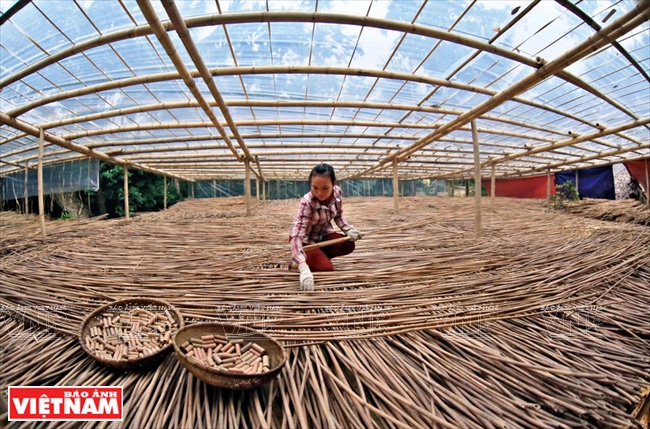
When expanding production, Hoa pays special attention to its environmental impact.
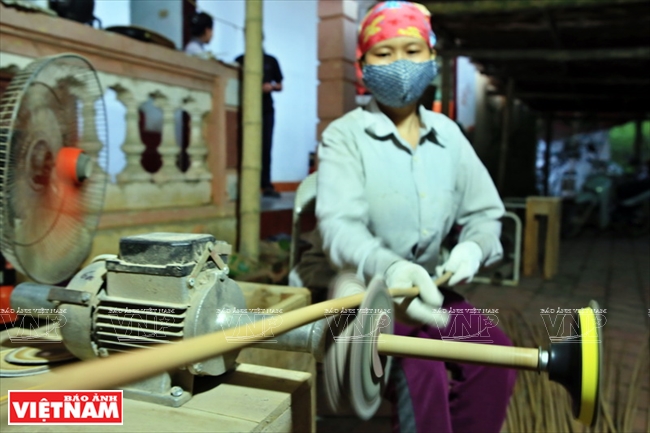
Hoa’s bamboo straw workshop creates jobs for 11 locals who earn an average income of 195-260 US dollars/month.
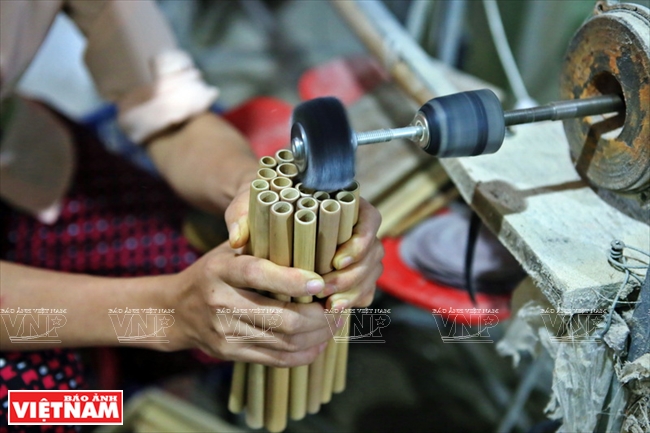
Hon Mu supplies over 500,000 bamboo straws to markets.
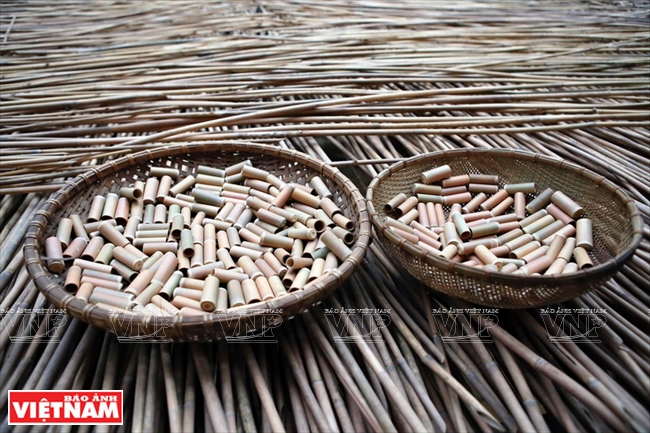
The bamboo straws are steamed and then sun-dried.
|
Hon Mu was built following the model of Fukuoka’s farm in which different plants are grown in the same area to tap all the uses of the plants.
Hon Mu was set up in a forest area for which Hoa has to pay monthly rent. Hoa offers free stays at the farm for visitors who have to provide their own essentials. These include setting up camps, picking vegetables, fishing, and cooking. Staying at Hon Mu, one can experience a way of life which relies completely on nature.
Hon Mu farm also makes products from natural materials such as bamboo spoons, straws and ball point pens.
The idea of making bamboo straws came to Hoa after he attended a seminar on the environmental harm that comes from using plastic straws.
Hoa found this idea quite feasible, given that bamboo is easily found in Vietnamese villages.
He was even more determined to make bamboo straws after seeing this product sold on the commercial website Alibaba at a price much higher than the cost at which he could make them.
In September 2017, Hoa debuted his bamboo straws which immediately received positive market responses. The order for Hon Mu bamboo straws had risen sharply from hundreds to hundreds of thousands of pieces over a two-month period. Hon Mu now supplies over 500,000 bamboo straws to meet the demand.
Although the demand for the bamboo straws surged quickly, Hoa did not expand his production because “I must ensure that the production expansion does not hurt the environment and the sustainability of nature,” Hoa said.
After spending one year studying the environmental impact of his project, Hoa expanded his bamboo straw workshop because his study showed that the use of bamboo did not affect the canopy of the forest at Hon Mu. Also, the discarded bamboo straws easily disintegrate without polluting the environment.
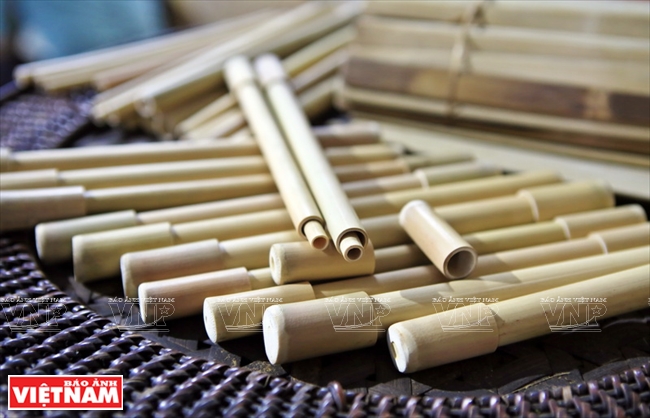
Enclosed with cleaning sticks, the straws can be used multiple times.
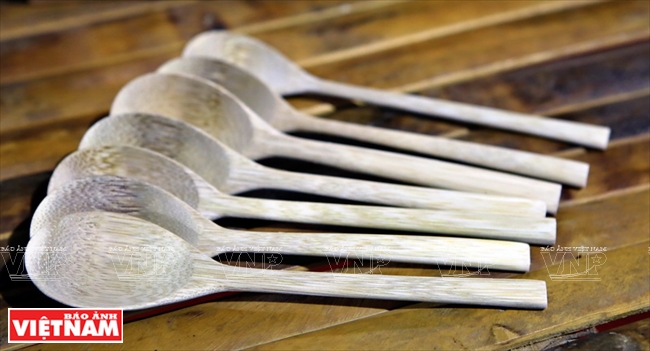
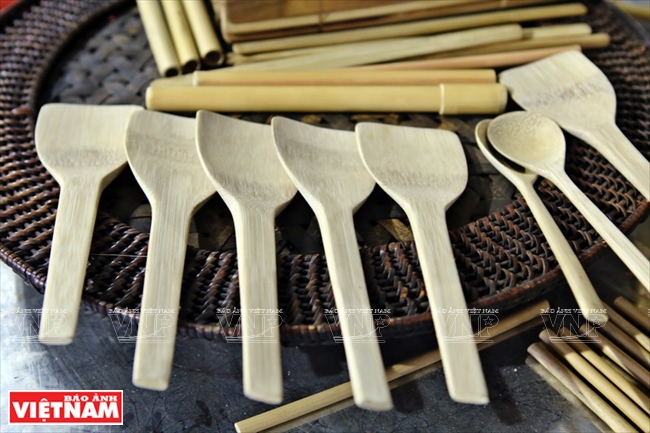
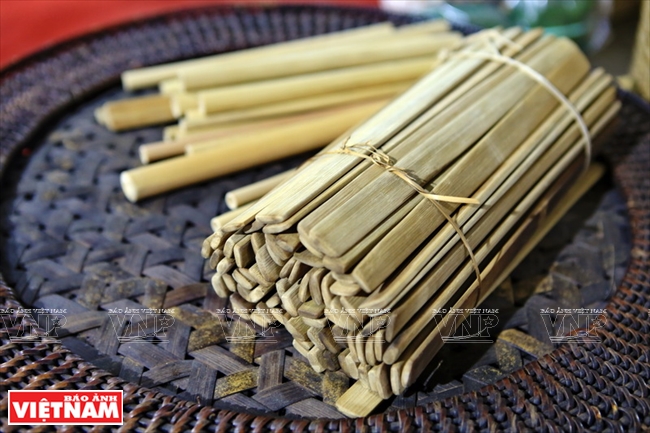
Hon Mu bamboo products.
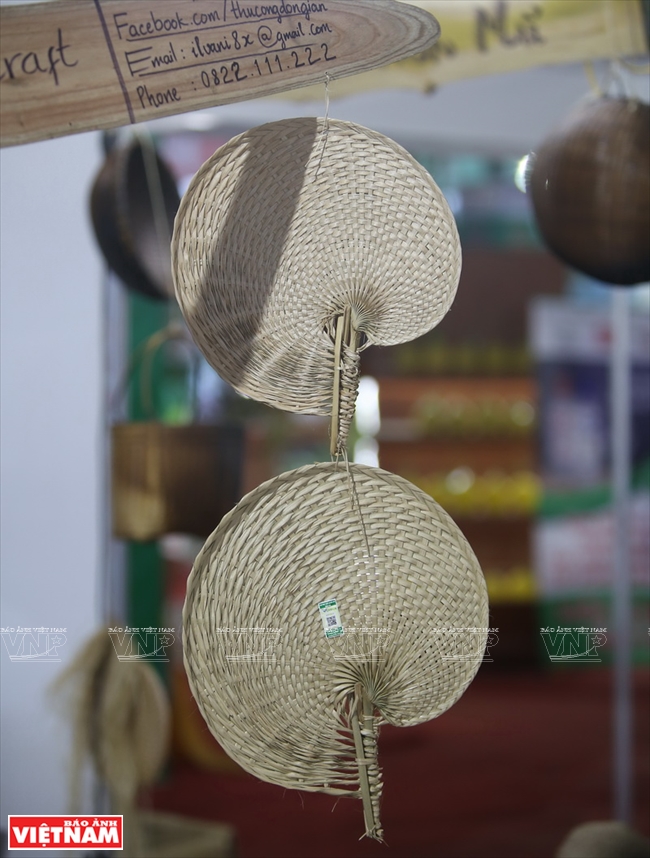
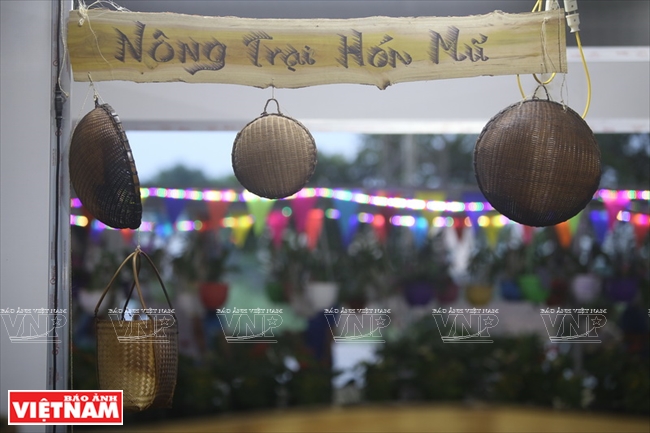
Hon Mu also helps farmers in the neighborhood find outlets for their handicraft products.
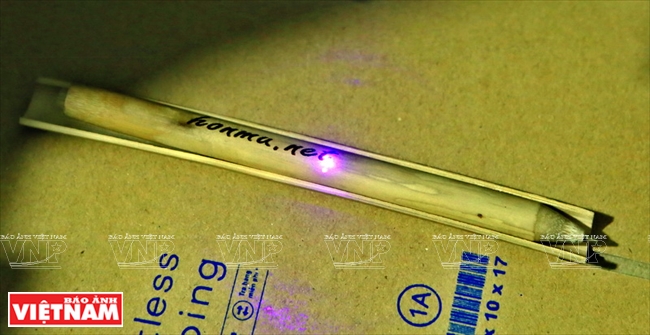
The Hon Mu brand is carved on bamboo ball point pens.
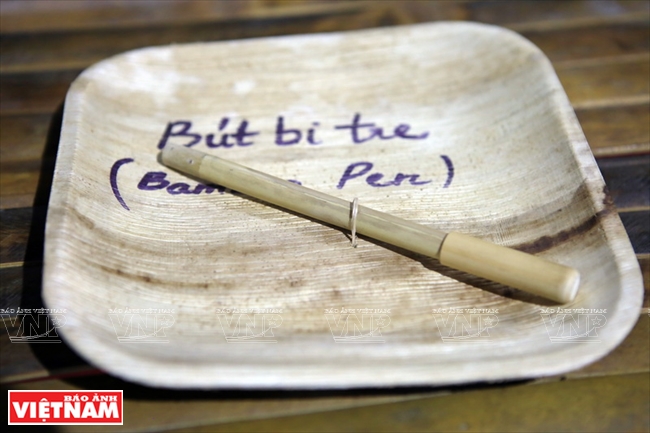
Hon Mu bamboo ball point pens are well received by the market.
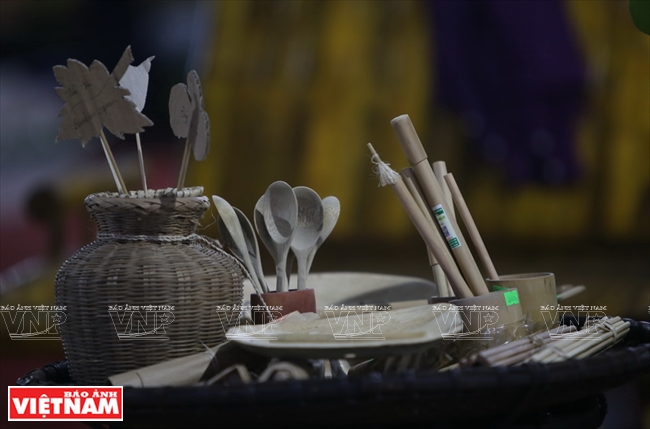
Hon Mu products displayed at Vietnamese Goods Fair 2018 in Lam Kinh relic site in Tho Xuan, Thanh Hoa.
|
Hoa said the expansion of his bamboo straw workshop creates jobs for locals who can earn a monthly income of 4.5-6 million dong (195-260 US dollars).
More importantly, it helps raise awareness in the community about the benefits of sustainable use of natural resources. Previously, locals sold bamboo to paper mills at 600,000-700,000 dong (26-30 US dollars)/ton. Now they can sell to Hoa at a price as high as 30 million dong (1,300 US dollars)/ton. This means that they must use and grow bamboo at the same time to ensure a stable supply source. “So, they are not only the users, but also the growers of the forest,” Hoa said.
Hoa plans to turn Hon Mu into a non-profit community where people can experience a new way of life which is close to nature and environmentally friendly./.
Story: Thao Vy Photos: Cong Dat-Tran Thanh Giang